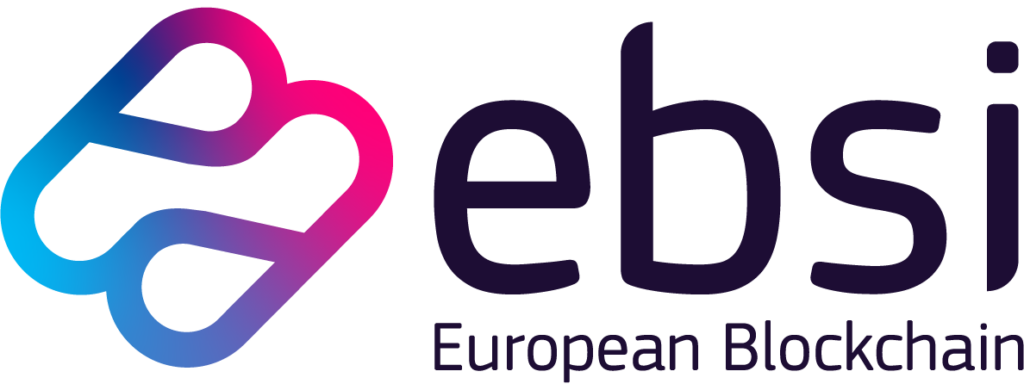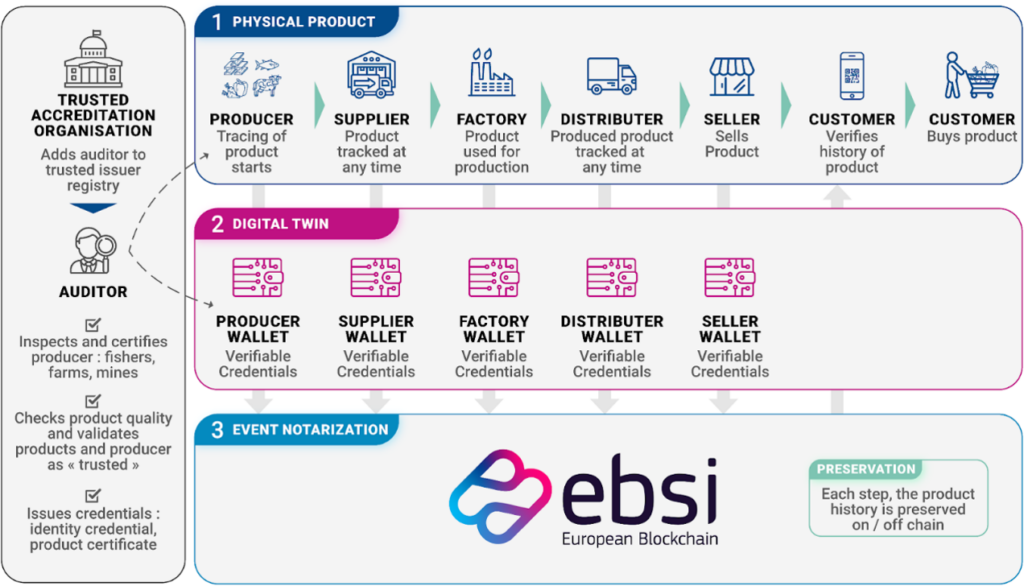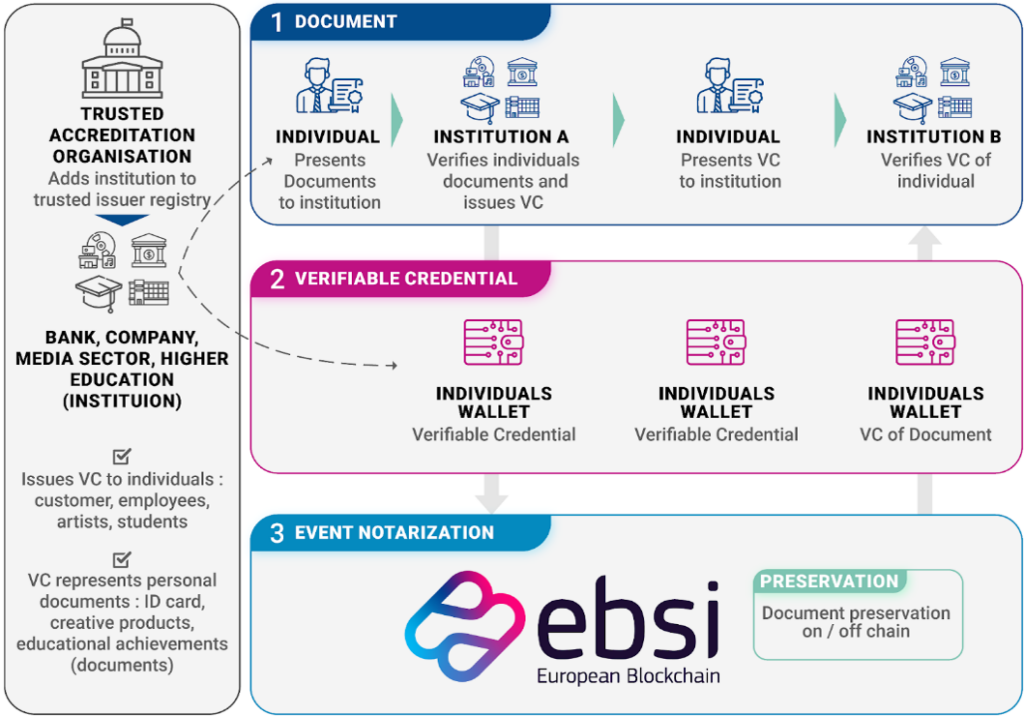
The traceability of data, documents, and physical goods are essential in many fields. Therefore, the traceability use case was one of the first developed by the EBP (from 2018 on). Traceability use cases and applications enable EBSI and other blockchain-based electronic ledgers to be used and applied in many domains.
The general objective of this project is to create an “umbrella architecture” based on existing EBSI services. The architecture builds the basis for the realization of traceability application scenarios. Furthermore, TRACE4EU focuses on engagement with pan-European stakeholders and promotion of recommendations for further development of the EBSI eco-system. As a result, TRACE4EU can significantly influence traditional industries and contribute to their transition to more efficient, productive, competitive, and resilient ones. It will also strengthen transparency in the European area for citizens, who can better and proactively track the flow of commodities and data through future traceability implementations.

More Details?
Learn more about the EBSI projects and their use cases.
The umbrella architecture will be derived from the work on multiple scenarios, including analyzing requirements for traceability applications of tangible and intangible assets that work in local and cross-border settings. One of the project goals is to identify existing EBSI services and develop additional traceability services strongly connected with EBSI services. To connect existing EBSI services and new traceability services, the TRACE4EU partners will implement, evaluate and demonstrate developed scenarios by using and extending the EBSI services. To enable the necessary flexibility of the resulting architecture, each partner will also consider the local specifics for traceability in each country or region. A corresponding country-specific government supports each application scenario of this proposal. Furthermore, the governments provide local requirements for applying the umbrella architecture.
TRACE4EU consortium divides traceability use case into two application scenarios:
- Traceability of Data and Documents
- Traceability of Products and Materials

Products and Materials respond to the need to be able to view the components of products transparently. However, transparency in product provenance can increase citizens’ awareness to buy more local products. It is also helpful for companies and governments, which must check and prove the materials used. Building traceable supply chains with proof, certificates, and data lead to more openness and transparency for society and business. The TRACE4EU project will work on four application scenarios:
- Food production from agricultural products
- Seafood lifecycle
- Trademarked sale of halloumi
- Traceability of metals for battery production.

Data and Documents address the traceability of digital information. Verifying digital information for correctness, integrity, and/or validity is a significant challenge because multiple actors or non-trusted third parties often play a role in issuing or retrieving the data. The goal is to extend EBSIs’ traceability services to solve these problems. To do this, TRACE4EU will work on the following application scenarios:
- Open rights data management for digital assets (led by Finland and Estonia)
- Resumé credentials for citizens
- Decentralized academic publishing, DAP
- Electronic delivery of verified messages
- Customer data retrieval for identification, KYC.
The application scenarios offer real added value for the citizens of the European Union and can influence other activities as flagship projects. Working on the application scenarios will lead to a holistic, generalized architecture from the scenarios’ requirements. The results of the application scenarios and the TRACE4EU project, in general, will promote the development of future traceability projects of EBSI.
